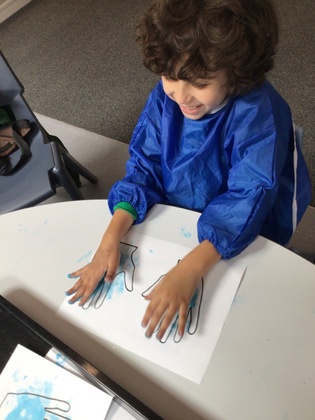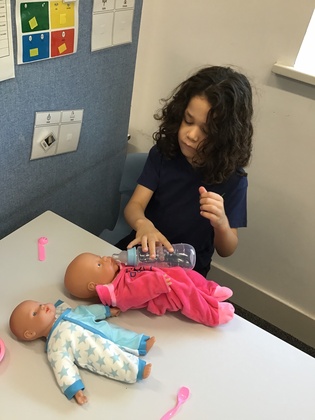

Key Stage 1 Topic at Spa Camberwell is interesting, creative and stimulating. It encompasses Science, Humanities and PSHE. Subject-based skills are taught, alongside the direct teaching of communication and independence skills differentiated to individual EHCP targets. This supports pupils in developing a foundation of knowledge and skills to support their transition into a subject-based curriculum style in Key Stages 2 and 3. Each subject is equally taught across the half term and school year, and links to the overall half termly topic.
Learning to Learn in Topic
In Science, students explore early scientific skills through sensory-based activities. They explore resources and materials through touch, sound and sight and smell and explore the immediate effects of their actions through observation and play-based experiments.
In Humanities, students explore the immediate environment around them and explore new contexts through sensory play and role play. This supports students to develop the vocabulary and understanding of experiences that they have less access to in their communities. In RE, students learn about religion through values, such as help, care and love, and begin by learning about these values their immediate experiences.
In PSHE, students explore what makes them feel good through a Mindapples approach and identify activities that result in happiness. Adults support students to understand their emotions through the Zones of Regulation and students developed their understanding of their emotions and labelling these accordingly.
Attention Autism is directly taught as a Topic lesson once a week, beginning with Stage 1 to support the development of sitting in shared and joint attention activities.
Learning Together in Topic
In Science, students engage in group and shared experiments and comment on what they have observed and experienced using communication boards to support their use and understanding of scientific vocabulary.
In Humanities, students comment on immediate experiences and the environment around them. They explore new contexts through play alongside others and apply their new vocabulary through functional communication, such as communication boards. In RE, students apply their understanding of values to group and shared experiences and contexts, supporting them to understanding the meaning of each value in a relevant and meaningful way.
In PSHE, students explore personalised sensory toolkits and begin to use these to self-regulate through direct teaching using the Zones of Regulations. Students also develop confidence in identifying their emotions through regular check-ins and explore strategies for self-regulation.
Attention Autism is directly taught as a Topic lesson once a week, progressing from Stages 1-4 as students develop shared and joint attention, supporting their ability to engage in a group of peers.
Learning for the Future
In Humanities, students extend their understanding of experiences and contexts to the wider world, through the use of maps, artefacts and abstract resources, and recognise these in their community and everyday lives. In RE, students apply their understanding of values to familiar experiences and their family and community and comment on such experiences by applying what they define each value to be.

